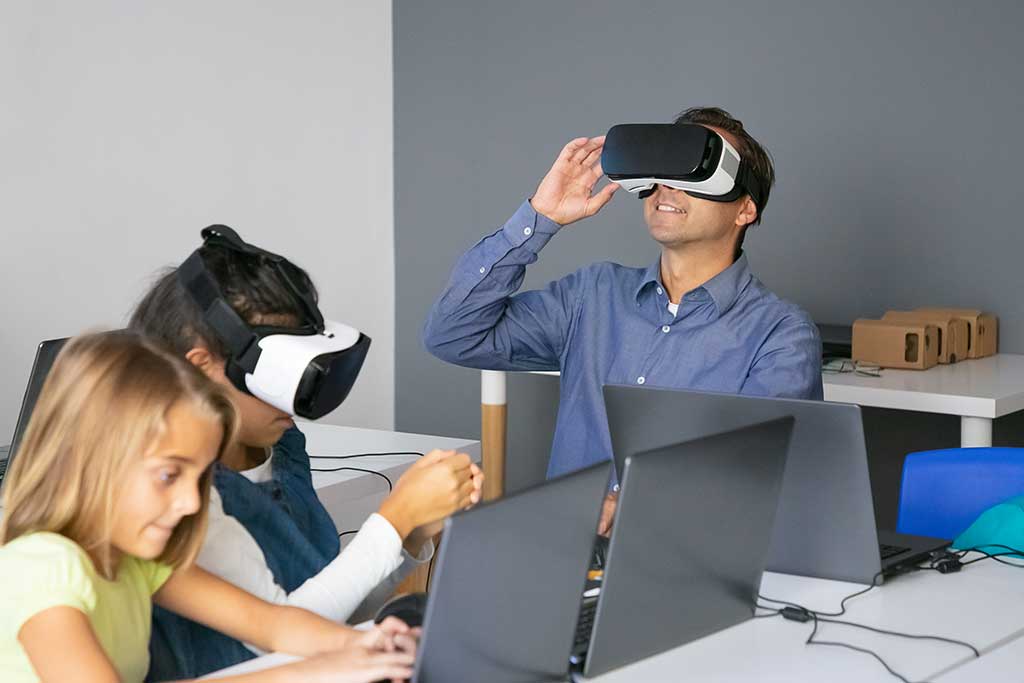Now Reading: Can AI Replace the Machine Learning Engineer?
-
01
Can AI Replace the Machine Learning Engineer?
Can AI Replace the Machine Learning Engineer?

AI will not replace Machine Learning Engineers but will transform their role. It automates routine coding, acting as a powerful assistant. However, human skills in problem-solving, ethics, system design, and innovation remain irreplaceable. The future involves engineers leveraging AI as a tool to enhance their capabilities.
In today’s world, we see news about Artificial Intelligence (AI) writing articles, creating art, and even writing computer code. This leads to a very important and worrying question, especially for students and professionals in the technology field: If AI can code, will it eventually replace the very people who create it? Specifically, can AI replace a Machine Learning Engineer?
To answer this simply, let’s first understand what these terms mean. Think of Artificial Intelligence (AI) as the big, broad dream of creating machines that can think and act intelligently, like humans. Machine Learning (ML) is a powerful technique used to achieve that dream. It’s like giving a computer the ability to learn from data without being explicitly programmed for every single task.
And the Machine Learning Engineer is the skilled architect who builds, deploys, and maintains these smart systems. They are the bridge between complex data science and real-world software applications.
So, will the tool replace its own architect? The short answer is no, not entirely. However, the role of the Machine Learning Engineer is evolving dramatically. Let’s explore why.
What AI is Good At: The Powerful Assistant
The new AI tools, like advanced code generators and chatbots, are incredibly good at certain tasks. They are like a super-smart, incredibly fast junior assistant for the engineer.
- Automating Repetitive Coding: AI can quickly write standard, boilerplate code. This saves the engineer a lot of time and mental energy, allowing them to focus on more complex problems.
- Finding Errors and Debugging: An AI can scan thousands of lines of code in seconds to find potential bugs or suggest optimizations, something that would take a human much longer.
- Generating Ideas and Prototypes: An engineer can ask an AI to provide multiple ways to solve a problem or to create a basic prototype model, speeding up the initial stages of a project.
- Accessing Vast Information: An AI has been trained on a huge amount of public code and knowledge. It can instantly provide examples and solutions that an engineer might not be aware of.
In this sense, AI is not a replacement; it is a force multiplier. It makes a skilled Machine Learning Engineer much more productive and powerful.
Where Human Engineers Are Irreplaceable: The Strategic Mind
While AI can handle the “how” of coding, it struggles with the “why,” “what,” and “so what.” This is where the human engineer’s expertise becomes crucial.
1. Problem Definition and Critical Thinking
An AI cannot walk into a company’s boardroom and understand the core business problem. Should we build a system to predict machine failure, recommend products to customers, or detect fake transactions? A Machine Learning Engineer works with stakeholders to define the right problem to solve—a task that requires deep business understanding and strategic thinking, not just coding.
2. Real-World Judgment and Ethics
Machine learning models can have serious flaws. They can become biased based on the data they are trained on. For example, a model trained on recruitment data from the past might unfairly discriminate against certain groups of people.
- A human engineer is needed to ask, “Is this model fair?” “Is it ethical?” “What are the consequences if it makes a wrong decision?” This moral and ethical judgment is beyond the capability of any AI.
3. True Creativity and Innovation
AI is great at combining existing knowledge in new ways, but it lacks genuine creativity. It cannot dream up a completely new type of machine learning model or imagine a novel solution to a problem that has never been solved before. Human engineers drive true innovation.
4. End-to-End System Design
Building a real-world ML system is like constructing a building. It’s not just about the bricks (the code). An engineer designs the entire architecture—how data will be collected, how the model will be trained, how it will be deployed on servers, and how its performance will be monitored over time. This requires a holistic, big-picture vision that AI does not possess.
5. Understanding the “Why”
When a complex model makes a decision, it’s often a “black box.” A human engineer is essential for interpreting the model’s results, understanding why it made a certain prediction, and explaining it in simple terms to managers and customers. This builds trust and ensures the model is working correctly.
A Simple Analogy: The Master Chef and His Kitchen Tools
Imagine a master chef, like Sanjeev Kapoor. Today, he has access to fantastic tools like food processors, high-tech ovens, and electric mixers. These tools help him chop vegetables faster, mix dough more evenly, and cook with precise temperature control.
- Did these tools replace Chef Sanjeev Kapoor? No.
- Can these tools themselves decide the menu, create a new recipe, or judge the perfect balance of spices for the Indian palate? No.
The tools made him more efficient, but his creativity, his understanding of flavours, his experience, and his judgment are what make him a master chef. The AI is the food processor for the Machine Learning Engineer.
The Future: Evolution, Not Replacement
So, what does the future hold? We will not see a world without Machine Learning Engineers. Instead, we will see a shift in the skills they need.
- The “Code-Monkey” is Endangered: Engineers who only know how to write routine code will find it difficult because AI can do that faster. Their jobs are at risk.
- The “AI-Augmented” Engineer is in High Demand: Engineers who learn to use AI tools effectively will become super-engineers. They will be valued for their:
- Strategic Thinking
- Business Acumen
- Ethical Judgment
- Complex Problem-Solving Skills
Their job will be less about writing every line of code and more about guiding the AI, designing robust systems, and ensuring that the technology is used responsibly and effectively.
A Message for Indian Students and Professionals
For the youth of India, this is not a threat but a tremendous opportunity.
- Focus on Fundamentals: Don’t just learn how to use a specific AI tool. Build a strong foundation in mathematics, statistics, and core computer science principles. These fundamentals will never go out of style.
- Develop Soft Skills: Work on your communication, critical thinking, and problem-solving abilities. These human skills will become your greatest asset.
- Embrace AI as a Partner: Learn to use AI tools. Understand their strengths and weaknesses. The most successful engineers will be those who can work seamlessly with AI.
Conclusion: The Symphony of Human and Machine
AI will not replace Machine Learning Engineers. Instead, it will replace Machine Learning Engineers who refuse to work with AI. The future belongs to a powerful partnership—where the human provides the vision, creativity, and wisdom, and the AI provides the speed, scale, and automation.
It will be a beautiful symphony, with the human as the conductor and the AI as the orchestra, creating technology that is not only powerful but also intelligent, ethical, and beneficial for all of humanity.
Stay Informed With the Latest & Most Important News
Previous Post
Next Post
-
 01Does Free Money Exist? The Real Story of How Your Passive Income Gets Taxed in India
01Does Free Money Exist? The Real Story of How Your Passive Income Gets Taxed in India -
 02Beyond the First Rupee: Building Your Personal System for Passive Income Success in India
02Beyond the First Rupee: Building Your Personal System for Passive Income Success in India -
 03Your Journey to Financial Freedom: A Simple Guide to Building Passive Income in India
03Your Journey to Financial Freedom: A Simple Guide to Building Passive Income in India -
 04Your Extra Income Journey: Top Side Hustles to Boost Your Earnings in India
04Your Extra Income Journey: Top Side Hustles to Boost Your Earnings in India -
 05The Right Way for Kids to Learn Technology: A Guide for Indian Parents
05The Right Way for Kids to Learn Technology: A Guide for Indian Parents -
 06A New World at Your Fingertips: A Simple Guide to Technology Tutorials for Seniors
06A New World at Your Fingertips: A Simple Guide to Technology Tutorials for Seniors -
 07Your Guide to Learning Technology in 2025: Simple, Smart, and Effective
07Your Guide to Learning Technology in 2025: Simple, Smart, and Effective
































